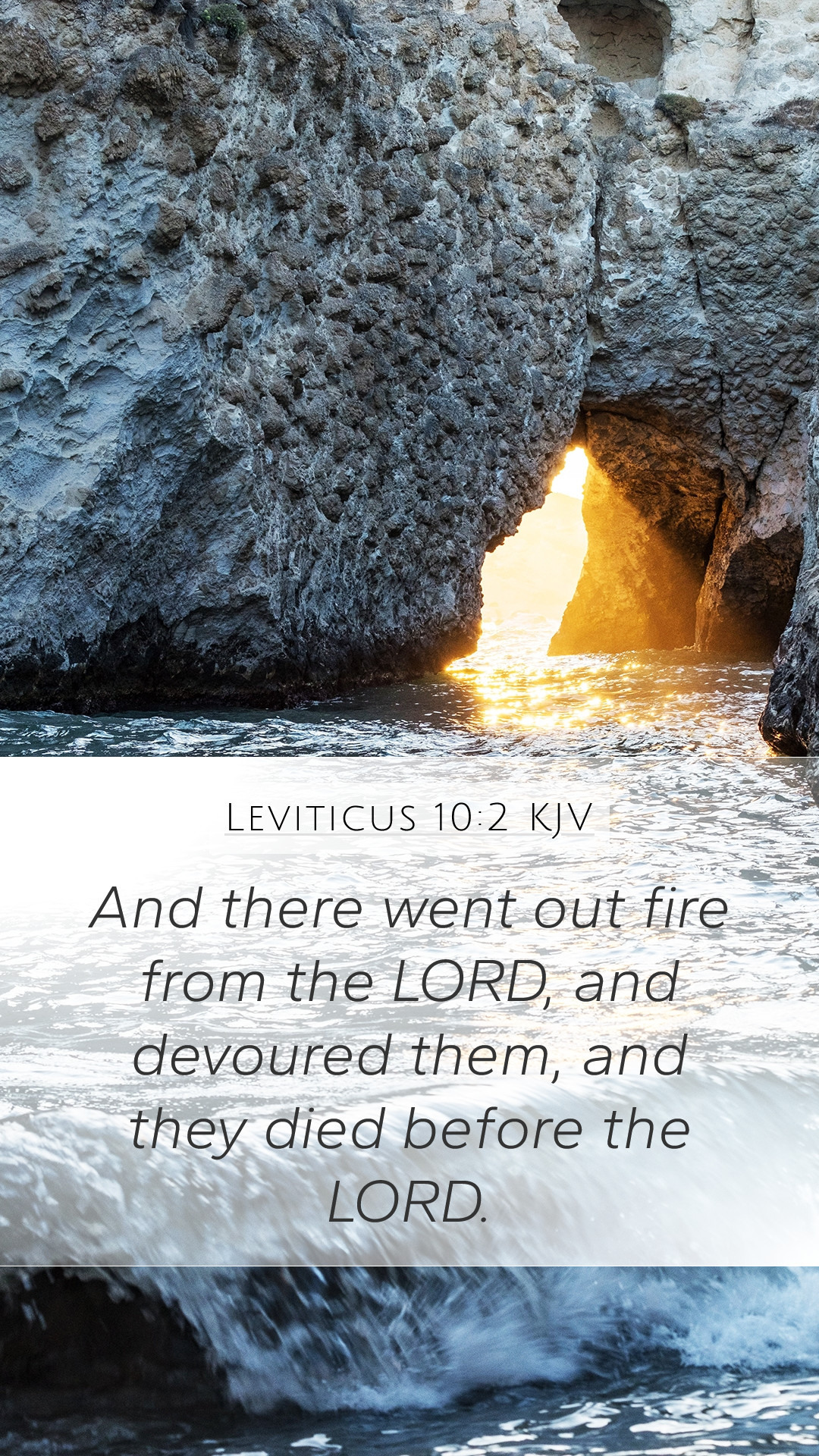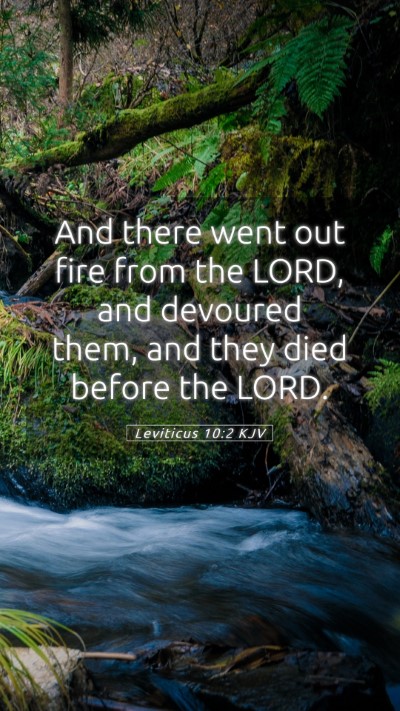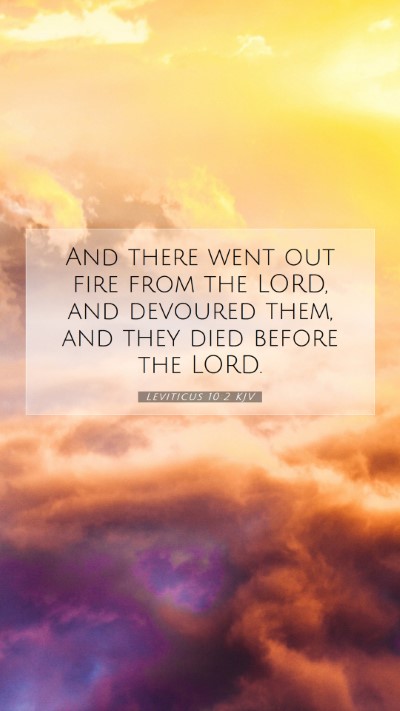Understanding Leviticus 10:2
Bible Verse: Leviticus 10:2 - "And there went out fire from the Lord, and devoured them, and they died before the Lord."
Introduction to Bible Verse Understanding
This passage presents a profound moment in the biblical narrative, highlighting the severity of divine holiness and the dangers of improper worship. In the context of Bible verse interpretations, this verse serves as a critical lesson about approaching God. Below, we synthesize insights from respected public domain commentaries for deeper Bible verse explanations.
Overview of the Context
Leviticus 10 occurs shortly after the consecration of Aaron and his sons as priests. The actions leading to the death of Nadab and Abihu, Aaron’s sons, are pivotal for understanding Bible study insights related to divine worship practices.
Commentary Insights
- Matthew Henry:
Henry emphasizes the gravity of Nadab and Abihu’s sin, describing them as having offered "strange fire" which was not commanded by God. This act reflects a disregard for divine instruction and serves as a crucial warning against improvising in worship.
- Albert Barnes:
Barnes elaborates on the concept of God’s consuming fire as a symbol of His holiness and justice. He notes that their punishment was immediate, demonstrating God’s intolerance for irreverence and reminding the readers of the sanctity required in His presence.
- Adam Clarke:
Clarke analyses the cultural context, noting that Nadab and Abihu were likely caught up in the fervor of worship but failed to adhere to God’s specific commands. He stresses that their death served not only as a punishment but also as a deterrent to others who might enter the priesthood improperly.
Theological Implications
The incident exemplifies several vital truths in Biblical exegesis:
- Holiness of God: The event reaffirms that God is holy and requires His people to approach Him with reverent fear and obedience.
- Importance of Obedience: The verse underscores the necessity of following God's guidelines strictly, reflecting on the consequences of deviating from His commands.
- Divine Judgment: The immediacy of the fire indicates that God’s judgment can be swift and serves a purpose in instructing His people about the seriousness of their covenant relationship with Him.
Applying the Text to Daily Life
This Scripture analysis prompts readers to reflect on their approaches to worship and their relationship with God. It encourages believers to consider the following:
- Are we approaching God with the reverence He deserves?
- Do we adhere to the teachings of the Bible in our worship practices?
- How can we ensure that our acts of worship align with God’s commands?
Cross References
- Exodus 30:9 - Prohibition against offering strange incense.
- Numbers 3:4 - Reference to the death of Nadab and Abihu in the context of Levitical duties.
- Hebrews 12:29 - "For our God is a consuming fire," echoing the holiness of God present in the Old Testament.
Conclusion
Leviticus 10:2 provides crucial lessons in understanding Scripture, emphasizing the importance of adhering strictly to God’s commands and recognizing His holiness. The analysis of this passage can foster meaningful discussions in Bible study groups and encourage personal reflection on one’s worship practices. Through readings and discussions, believers can gain deeper Bible study insights that enhance their overall faith journey.


